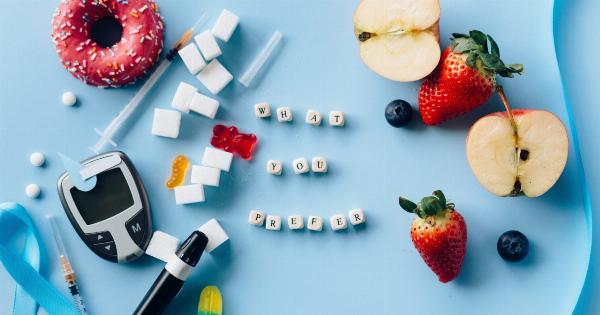Cancer is a debilitating disease that not only affects the physical health of a patient but has an impact on their mental and emotional health as well. It is a disease that affects millions of people across the globe.
There is still a lot of research that needs to be done to fully understand the causes of cancer and how it can be effectively managed. However, there are some factors that have been identified as contributing to the development of cancer and can be managed. One of these factors is managing insulin levels and sweeteners.
What is Insulin?
Insulin is a hormone that is produced in the pancreas and plays a vital role in the regulation of blood sugar levels in the body. It helps to move sugar from the blood into the cells of the body, where it can be used as energy.
Insulin also plays a role in the storage of excess sugar in the body, which is important for maintaining healthy blood sugar levels.
Insulin Resistance and Cancer
Insulin resistance is a condition where the body becomes less responsive to the insulin that is produced by the pancreas, leading to higher levels of insulin in the blood.
This can lead to a number of health problems, including an increased risk of developing cancer. Studies have shown that there is a link between insulin resistance and the development of certain types of cancer, including breast, colon and prostate cancer.
Managing Insulin Levels
There are a number of things that can be done to manage insulin levels. One of the most important is to maintain a healthy weight. Being overweight or obese increases the risk of insulin resistance and the development of cancer.
By maintaining a healthy weight through diet and exercise, the risk of insulin resistance and cancer can be reduced.
Another way to manage insulin levels is to avoid foods that are high in sugar and carbohydrates. These foods can cause a spike in blood sugar levels, which can lead to insulin resistance over time.
By choosing foods that are low in sugar and carbohydrates, blood sugar levels can be better regulated and the risk of insulin resistance and cancer can be reduced.
Finally, it is important to make sure that the diet includes plenty of fiber. Fiber helps to slow down the absorption of sugar in the body, which can help to regulate blood sugar levels and reduce the risk of insulin resistance and cancer.
Sweeteners and Cancer
Sweeteners are often used as an alternative to sugar in order to help manage insulin levels. However, there is some concern that certain sweeteners may contribute to an increased risk of cancer.
One of the most widely used sweeteners is aspartame. Aspartame has been linked to an increased risk of certain types of cancer, including lymphoma and leukemia, in some studies. However, other studies have shown no link between aspartame and cancer.
More research is needed to fully understand the potential risks of aspartame and other sweeteners.
Another sweetener that has been linked to cancer is saccharin. Saccharin has been shown to cause bladder cancer in rats, although it is not clear if the same risk exists for humans.
In the United States, saccharin is required to carry a warning label stating that it may cause cancer in humans. However, many other countries do not require a similar warning label.
Managing Sweeteners
If sweeteners are used, it is important to manage them carefully. Avoiding excessive consumption of sweeteners can help to reduce the potential risks of cancer.
It is also important to choose sweeteners that are considered safe and have been thoroughly researched. Finally, it is always a good idea to consult with a healthcare professional about any concerns regarding the use of sweeteners.
Conclusion
Cancer is a complex disease that requires careful management in order to reduce the risk of developing it. Managing insulin levels and sweeteners is an important part of cancer prevention.
By maintaining a healthy weight, choosing foods that are low in sugar and carbohydrates, incorporating plenty of fiber into the diet, and avoiding excessive amounts of sweeteners, the risk of insulin resistance and cancer can be reduced.



























